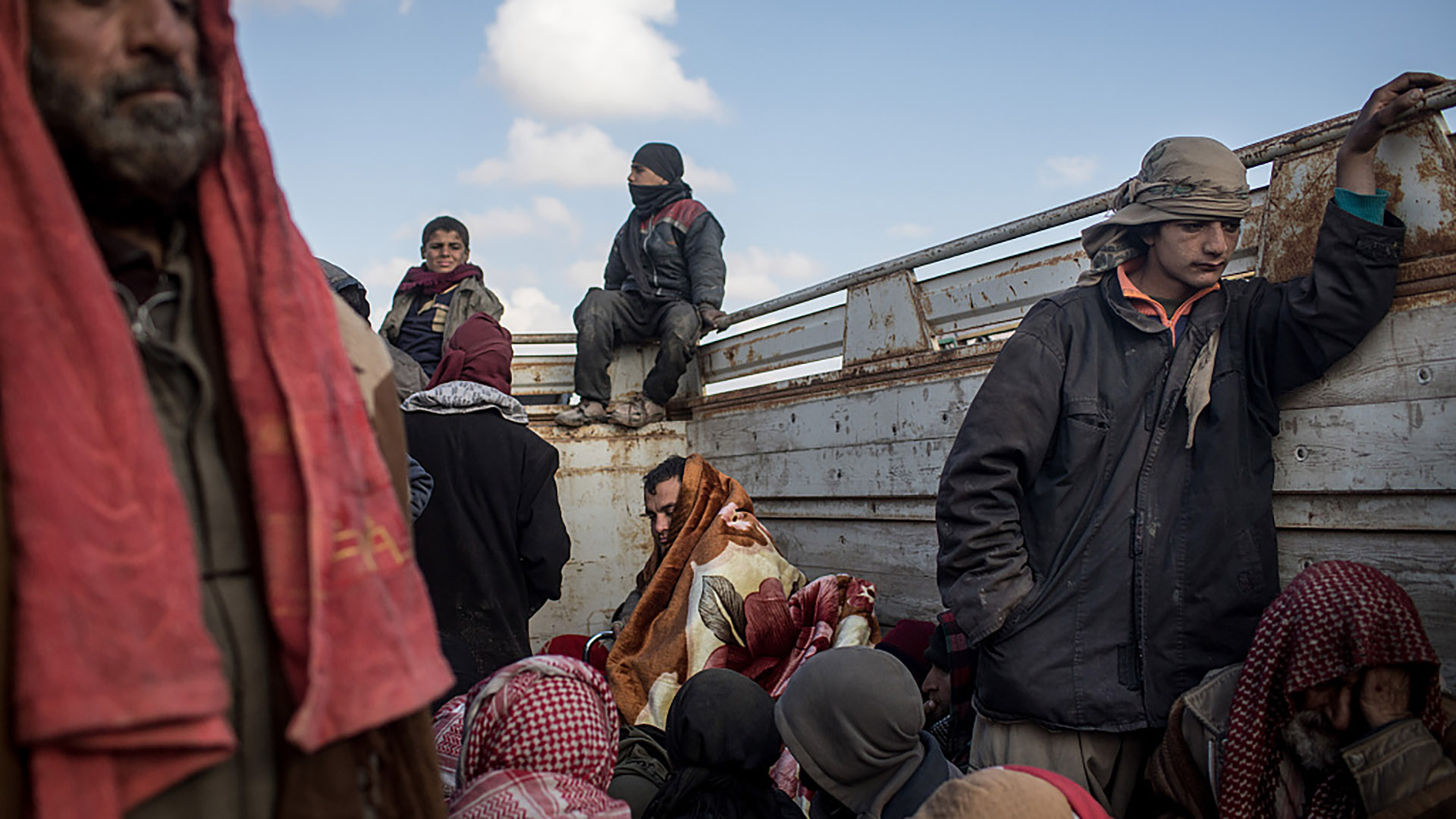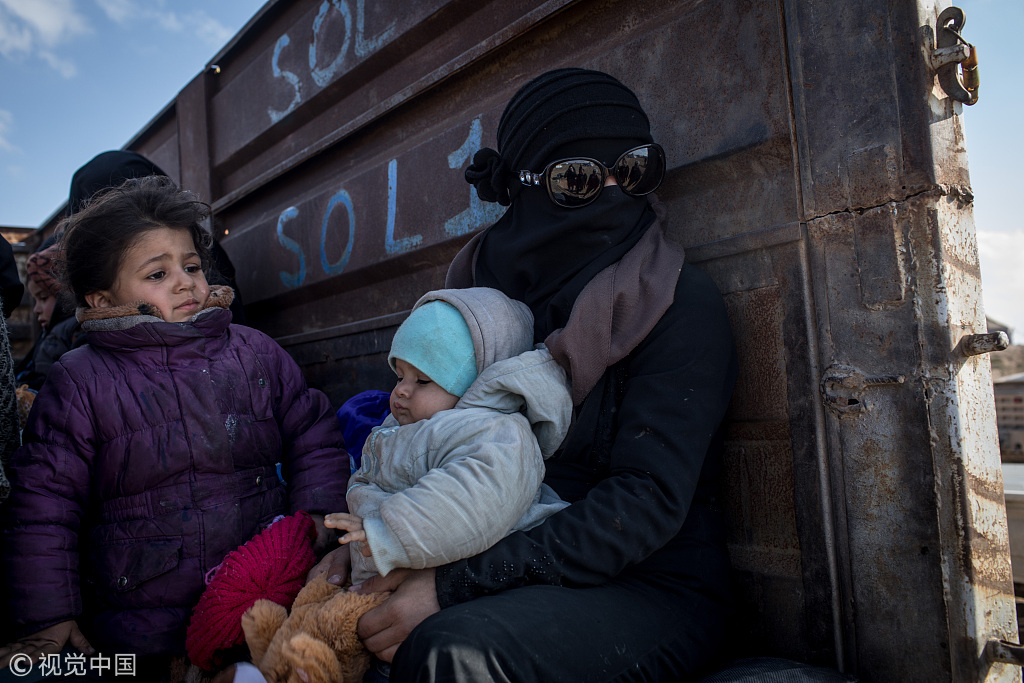
TV Show
16:32, 22-Feb-2019
Analyzing the future of Syria
The Heat
01:36

Nearly five years after ISIL declared a caliphate in Syria and Iraq, the militant group is on the brink of defeat in eastern Syria. The Syrian Democratic Forces (SDF) and U.S.-led coalition said it's only a matter of time before ISIL is defeated in Syria.
Some 300 militants are reportedly hiding out in underground tunnels and caves in Baghouz in eastern Syria, which is considered the last ISIL stronghold. A convoy of trucks was sent into the village on Tuesday to evacuate civilians, according to a SDF spokesman.
The United Nations reports that militants are holding as many as 200 families hostage, but the SDF spokesman says some of the fighters have now surrendered.
Sooner or later, the U.S. will withdraw from Syria, but the question remains: who control what parts of Syria, and how can we ensure a stable peace there? Mike Walter hosts panel guests from London, Moscow, Istanbul, and Washington, DC, to talk about Syria's future.
Kamal Alam is a visiting fellow with the Royal United Services Institute. He says that while the Kurdish-led Syrian Democratic Forces are targeting the ISIL stronghold in Baghouz, there have been loads of incidents in the north and east of Syria. Kamal thinks that there is little space left for ISIL now, but how it goes afterward is more important, in which a tussle between the Turkish forces, Syrian government forces, and its Russian allies are the key determinants.
As the security analyst and columnist for Al-Monitor's Turkey Pulse, Metin Gurcan agrees that the physical presence of ISIL is being defeated, but the ideological side of the story is still high at stake. The material, mental and political reconstructions are still important to Syria, and the key issue is to transform the government into a sustainable political structure.

A woman who fled fighting in Bagouz sits with her children on a truck after being screened by members of the Syrian Democratic Forces (SDF) at a makeshift screening point in the desert in Bagouz, Syria, February 9, 2019. /VCG Photo
A woman who fled fighting in Bagouz sits with her children on a truck after being screened by members of the Syrian Democratic Forces (SDF) at a makeshift screening point in the desert in Bagouz, Syria, February 9, 2019. /VCG Photo
Pavel Felgenhauer, a defense analyst and columnist for Russian newspaper Novaya Gazeta, indicates that Moscow wants to stay on a middle ground. The Russian government has a clear objective to keep Russian naval bases and provide a permanent naval presence in the Mediterranean. The country needs a stable Syrian government, which is important for Assad's government to take over regions under Kurdish American protection now, where there are natural gas and oil deposits.
Emma Ashford, who is a research fellow in Defense and Foreign Policy at the Cato Institute, analyzes the complicated position of the U.S. Trump wants to pull out American troops from Syria as soon as possible, yet Congress hopes to have a slower withdrawal, worrying Syria's possible research on the U.S. and its allies.
"There has never been a consensus in Washington on what to do other than fighting ISIL," said Emma. From a U.S. perspective, it is easy to blame Trump's administration for its fickle positions, but in fact, the U.S. has been conflicted about its presence in Syria for a long time.
In addition, she points out that no one has answered the question of how to prevent ISIL from coming back and is concerned about leaving space for terrorism without ensuring a stable peace in Syria.
Thousands of refugees are coming back to Syria every week, and the government is trying its best to look after them.
Regarding the 3.8 million of refugees still residing in Turkey, Metin points out that there are thousands of widows and children who remain unknown: "If they are terrorists or to be sent to the prison, or the victims of the integration and radicalization processes." Unfortunately, these hard questions still remain unanswered in international and legal settings.
The Heat with Anand Naidoo is a 30-minute political talk show on CGTN. It airs weekdays at 7:00 a.m. BJT and 6:00 p.m. Eastern in the United States.
(If you want to contribute and have specific expertise, please contact us at opinions@cgtn.com)

SITEMAP
Copyright © 2018 CGTN. Beijing ICP prepared NO.16065310-3
Copyright © 2018 CGTN. Beijing ICP prepared NO.16065310-3